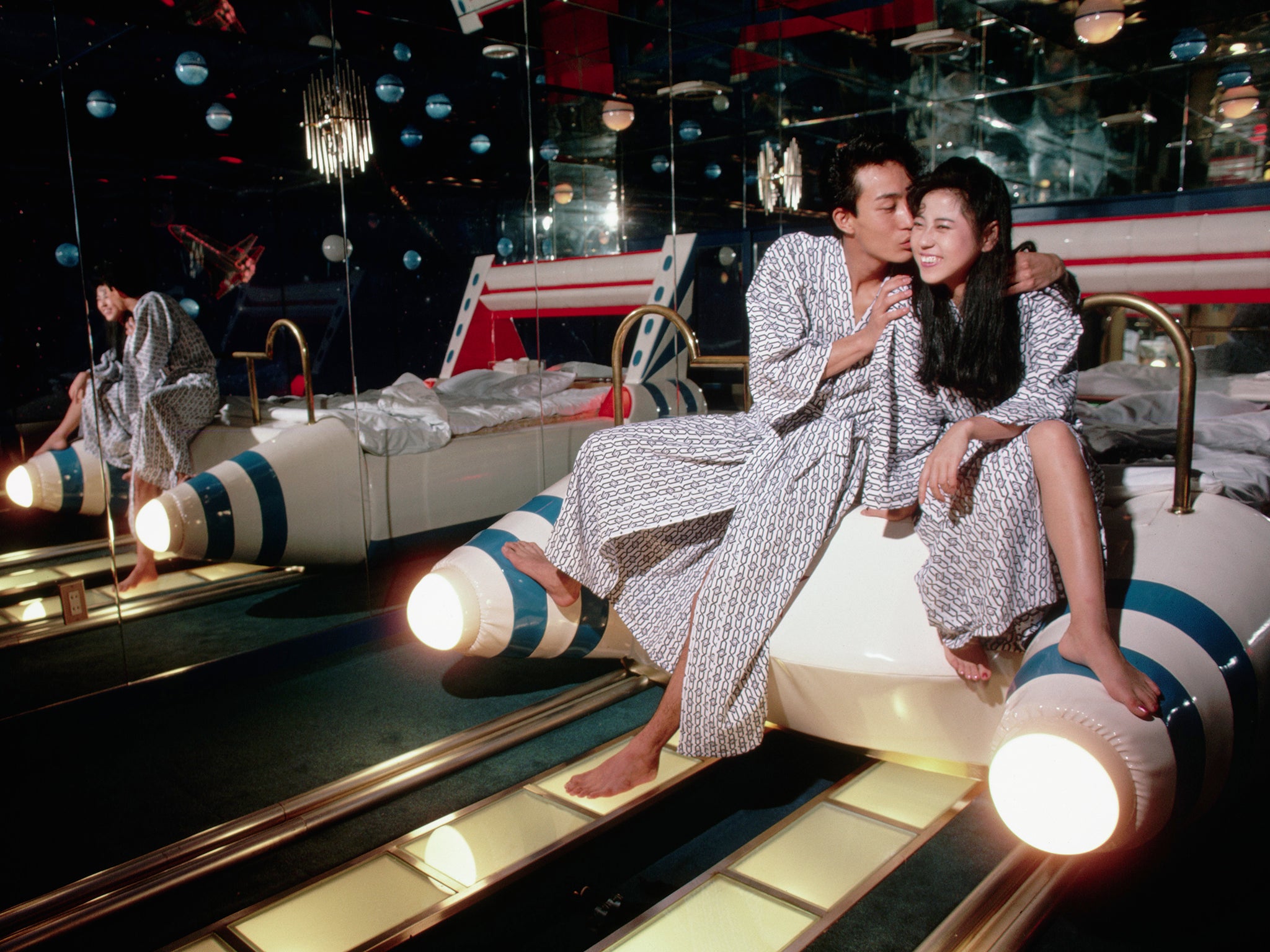Why love hotels are thriving in Japan
There might be a general assumption that there's something seedy about the trend, but there's far more to it

In the tightly-packed cities of Japan, privacy is hard to find, but not impossible.
Phil Cox and Hikaru Toda’s much-talked about documentary Love Hotel , delves into a world of locked doors and undisturbed anonymity, where £20 can buy you a couple of hours undisturbed.
Love hotels, or rabuho, are a booming business; some 30,000 of them attract 2.5 million people a day. Around ¥9000 - just over £50 - will buy you a night’s stay, or you can hire a room for what’s referred to, in true Japanese euphemism, as a two-hour ‘rest’ from anything between ¥3000 and ¥7000 (£17-£40).
Often gaudy and brash from the outside, many of the hotels have vaguely outrageous names: Hotel Gorilla Dream, Innocent Beaver and Hotel Banana & Doughnut were some of the most ridiculous, as voted in a survey by market research firm Goo Ranking last year. Their shuttered windows - far fewer than you would see on an ordinary building - makes them difficult to mistake for ordinary hotels.
Buying tickets from an automated machine or checking in through a lowered or one-way window that obscures the face of the receptionist behind, guests are guaranteed complete discretion.
While the rooms in many love hotels are fairly ordinary, others are quite the opposite. There are themed hotels - Las Vegas, perpetual Christmas, even Cinderella castles. Rooms cater to almost every imaginable taste or escapist fantasy with car-shaped beds, S&M cages or kitsch 80s paraphernalia. If you look hard enough you will find hotel rooms made up to look like they’re situated anywhere but a hotel: the classroom decked out with blackboard and desks, comes complete with schoolgirl costume; the subway carriage.
It's interesting to note that, despite the pervasive attitude that, as Toda has said, “what’s private should be kept private”, they're hardly hidden away.
There can be no doubt that the rooms are designed with one purpose in mind - and that very little ‘rest’ happens during those daytime slots. But clustered among the nightclubs and bars of fashionable entertainment districts or spread among the suburbs, love hotels are the meeting places of all kind of couples.
There are the flings and the one night stands, of course; the ongoing affairs; the paid-for company; married couples trying to escape their families for a few hours and even young couples.
Demographics come in daily rotations, with the daytime taken up mostly by clandestine lovers, with more young people arriving in the evening, and the last contingent of drunken partygoers stumbling in late, looking for a place to spend the night among the bars of nightlife districts.
After all, cheating isn’t the only reason to want seclusion - though that undoubtedly accounts for a large proportion of business. In a stumbling economy with high rates of youth unemployment, a lot of young couples live with their parents until they’re married, so it’s hardly surprising some will look outside the close quarters and thin walls for some privacy.
They’re well suited to young people thanks to their relative cheapness, and travel guides will even recommend them to travellers on a budget as the rooms are usually cheaper and bigger than in business hotels.
They also quite often have better amenities than a regular standard room, coming complete with a TV and often include games consoles, bigger showers and baths and, of course, bigger beds.
Perhaps that’s why business is thriving while other industries take a downturn. More likely, though, is a simpler explanation: people will always want to have sex, and in the cramped cities of one of the world's most densely-populated countries, they will always need somewhere to do it.
Join our commenting forum
Join thought-provoking conversations, follow other Independent readers and see their replies
Comments
Bookmark popover
Removed from bookmarks